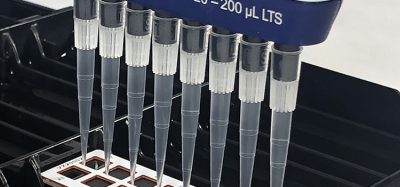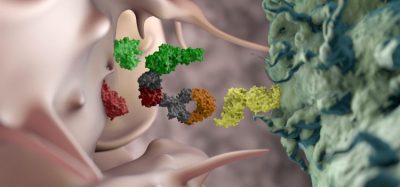TiGenix and Lonza sign agreement for the manufacture of stem cell-based treatment of complex perianal fistulas in Crohn’s disease
Posted: 13 February 2015 | TiGenix
Lonza, a global leader in biological and cell therapy manufacturing and TiGenix, an advanced biopharmaceutical company focused on developing and commercialising novel therapeutics from allogeneic expanded adipose-derived stem cells (eASCs) in inflammatory and autoimmune diseases, announced today an agreement for the supply of TiGenix’s eASC product, Cx601.


Under the agreement, Lonza will manufacture material for the Phase 3 trial of Cx601 in the US at Lonza’s cell therapy production facility in Walkersville, Maryland (US).
Cx601 is a locally-injected suspension of allogeneic expanded adipose-derived stem cells (eASCs) for the treatment of complex perianal fistulas in Crohn’s disease patients, currently in Phase 3 of clinical development in Europe. Following the positive feedback received at a meeting with the Center for Biologics Evaluation and Research within the US Food and Drug Administration (FDA), TiGenix is moving ahead with the development of Cx601 for the US market. To supply Cx601 for a Phase 3 trial in the US, and potentially for the US market when the product has been fully approved, TiGenix has chosen to partner with Lonza as its contract manufacturing organisation (CMO). TiGenix will begin the process of technology transfer to Lonza in the coming weeks.
In December 2014, TiGenix submitted to the FDA the required documentation for a Special Protocol Assessment (SPA) of its pivotal Phase 3 trial design for Cx601 in the treatment of complex perianal fistulas in patients with Crohn’s disease in the US. Agreement with the FDA on the SPA will ensure that the trial design is aligned with the FDA’s requirements for the future approval of Cx601. The Phase 3 trial in the US, if successful, together with positive data from the European Phase 3 trial, would enable TiGenix to file a Biologics License Application (BLA) with the FDA.
“It was critical for us to have secured an agreement with a leading CMO, like Lonza, for Cell Therapy Manufacturing,” said Eduardo Bravo, CEO of TiGenix. “With our appointment of a US advisory board in gastroenterology and inflammatory bowel disease, our submission to the FDA for an SPA for our US Phase 3 trial design, and now the agreement with Lonza for our US-based manufacturing, we have completed the early steps to prepare Cx601 for approval and entry in the American market.”
“We are pleased to partner with TiGenix for the production of Cx601. Lonza will utilise our manufacturing knowledge and world class quality systems to manufacture this potentially life- changing product for Crohn’s disease patients with complex perianal fistulas”, said David Smith, Head of Cell Therapy, Lonza Custom Manufacturing. “Lonza is looking forward to a long and productive partnership with TiGenix.”
About Cx601
Cx601 is a suspension of allogeneic expanded adipose-derived stem cells (eASCs) delivered locally through intra-lesional injection. Cx601 is being developed for the treatment of perianal fistulas in Crohn’s disease patients. Crohn’s disease is a chronic inflammatory disease of the intestine and patients can suffer from complex perianal fistulas for which there is currently no effective treatment. In 2009, the European Commission granted Cx601 orphan designation for the treatment of anal fistulas, recognising the debilitating nature of the disease and the lack of treatment options. In a Phase II clinical trial, Cx601 showed efficacy at 24 weeks in 56% of treated fistula tracts, which is more than two times higher than the current standard of care (TNF inhibitors).
Efficacy was measured as the complete closure and re-epithelisation of the fistula being treated with an absence of drainage. Additionally, 69.2% of patients demonstrated a reduction in the number of initially draining tracts. The trial also confirmed the safety of the use of allogeneic stem cells for the treatment of perianal fistula. Based on these results, TiGenix sought scientific advice from the European Medicines Agency (EMA) on the future development path of Cx601. TiGenix then initiated a randomised, double-blind, placebo-controlled Phase III trial in Europe and Israel designed to comply with the requirements laid down by the EMA. ‘Madrid Network’, an organisation within the Autonomous Region of Madrid which helps companies to grow through high-technology innovation, issued a soft loan to help finance this Phase III study. The programme is funded by The Secretary of State for Research, Development and Innovation (Ministry of Economy and Competitiveness) within the framework of the INNTEGRA plan.
This pivotal study is intended to enable filing for marketing authorisation in Europe and to serve as a key supportive study in filing for approval in other territories, including the US. The study’s primary endpoint is remission of the fistulous disease, defined as 100% healing of the tracts. The trial has a first complete analysis of results at 24 weeks, with a follow-up analysis to be performed at 52 weeks post-treatment. Evaluation of healing includes both clinical assessment and MRI confirmation (lack of abscesses larger than 2 cm²). Recruitment of the whole sample of patients was completed in the fourth quarter of 2014. The first clinical report is expected to be available in the third quarter of 2015. With positive results, TiGenix intends to submit a request for marketing authorisation with the EMA early in 2016. TiGenix is preparing to develop Cx601 for the US market. The company has filed for a Special Protocol Assessment (SPA) by the Food and Drug Administration (FDA) to ensure that the design of a new Phase III study to be conducted in the US is aligned with the FDA’s requirements for the future approval of Cx601.








